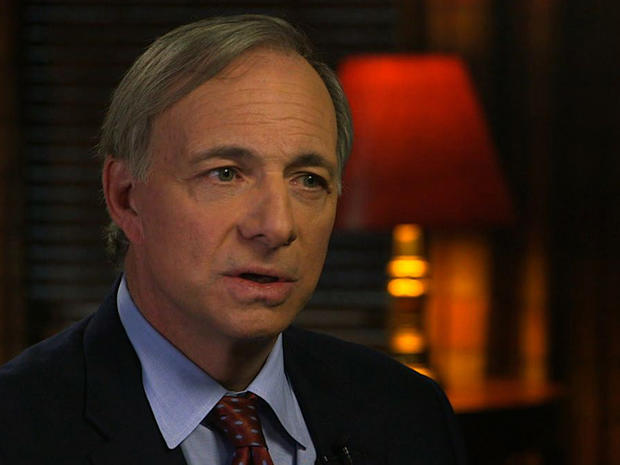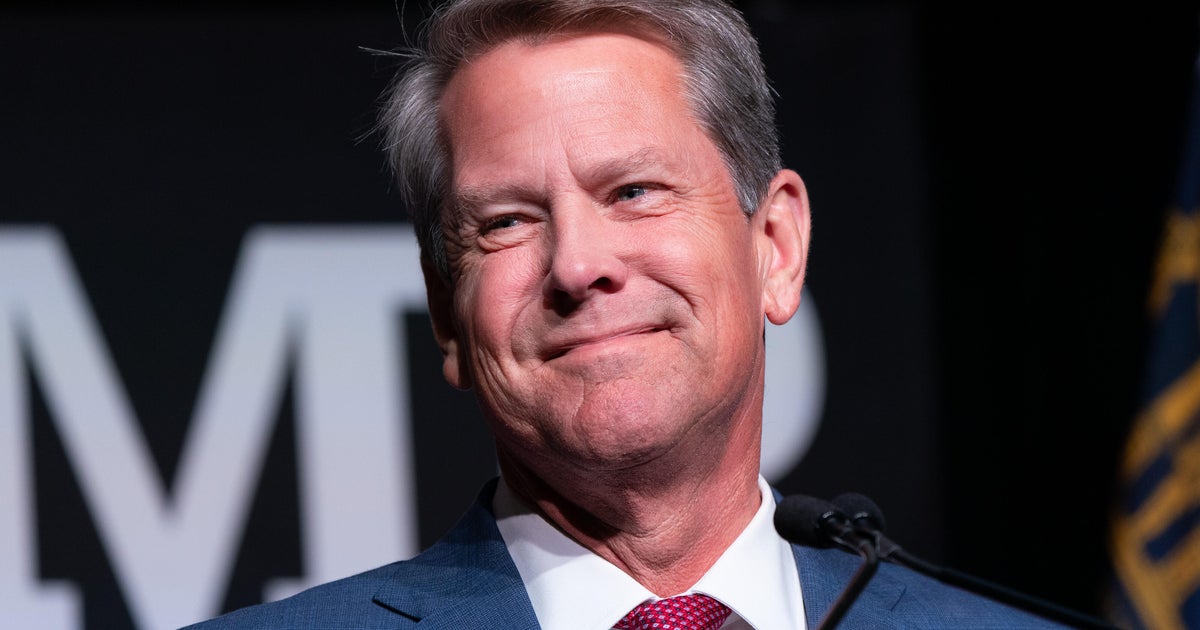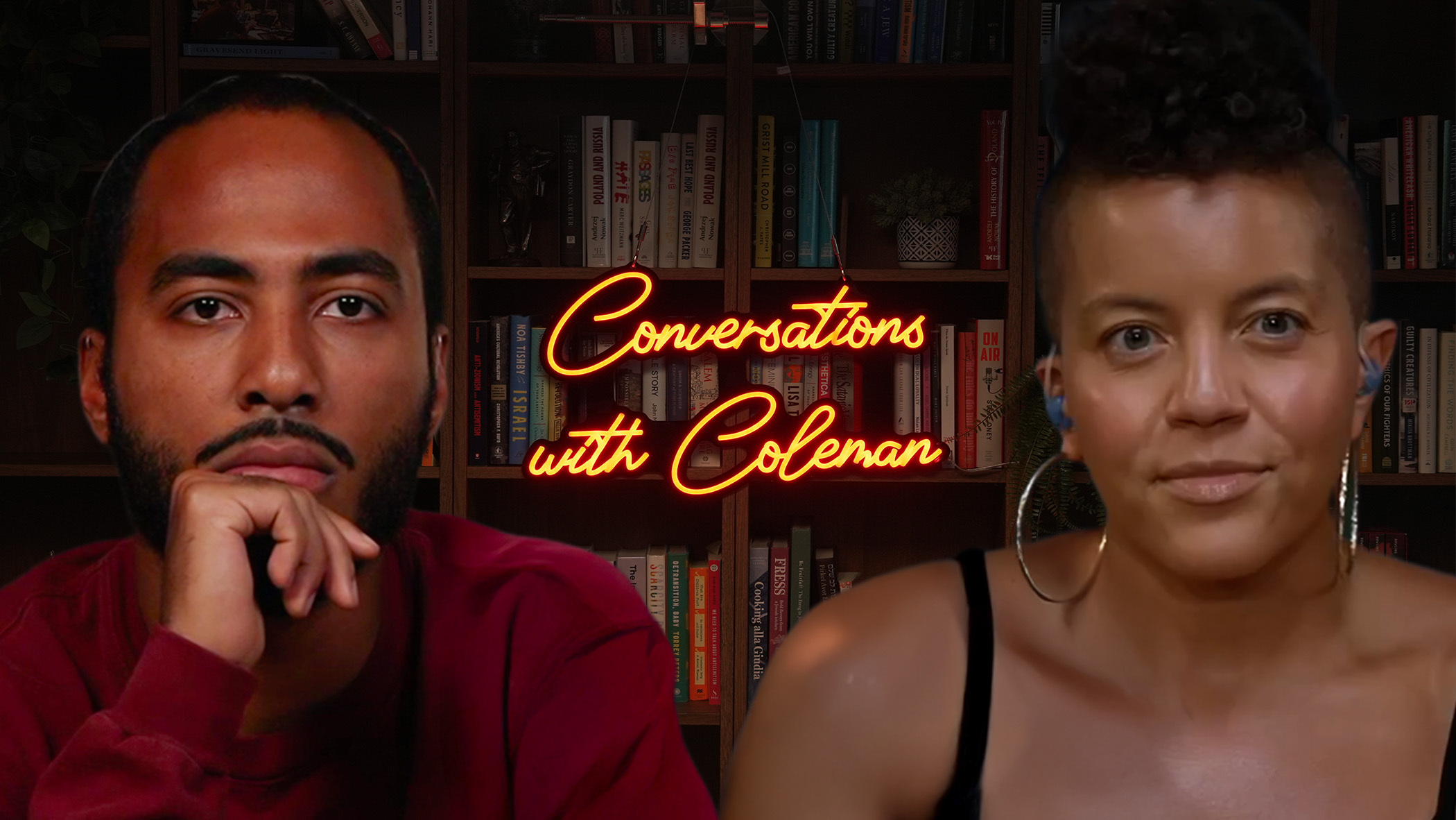Bridgewater Associates' Ray Dalio on addressing income inequality and reforming capitalism
In this episode of Facing Forward, Margaret Brennan talks with Ray Dalio, billionaire investor and founder of Bridgewater Associates, on how America's open economy and markets -- the things that have made the US the most powerful in the world -- are now part of its undoing. How does the country turn around an America so deeply divided and drowning in debt?
Highlights
- On addressing income inequality with Biden's $2 trillion relief package: "The amount provided was about five to seven times the amount that would have been needed to compensate everybody for their income losses. So it was a much larger distribution of money than was actually needed to deal with COVID. But I see those other needs and I think they're bigger than that, in fact. So those needs are there and that distribution took place in that way. And we'll probably- it's budgeted that we will see more of those kinds of needs. The issue is then where does the money come from and what are the consequences of that."
- On a the push for a wealth tax on the rich: "I think it's terrible to demonize anybody, whether they're rich or poor or anything. The country, by and large, created this- this environment of equal opportunity and people who come along and come up with ideas and make that inevitably earn a lot of money and become rich. And at the same time, I do agree that the excesses of that gap need to be addressed in an important way. So let's not demonize everybody. I think the most important issue is to be bipartisan, to bring both sides together in a smart way. And I almost don't care what is done, just as long as the- the large population, the most people are benefiting from an economy that works well to produce sound finances and sound economic growth."
Download, rate and subscribe here: Apple Podcasts, Spotify and Stitcher
"Facing Forward": Ray Dalio transcript
Producers: Richard Escobedo, Anne Hsu, Kelsey Micklas
MARGARET BRENNAN: Welcome to FACING FORWARD Ray Dalio, good to have you on the podcast.
RAY DALIO: Thanks for having me.
MARGARET BRENNAN: We spoke briefly before this podcast, and you told me your intention is to raise the alarm and have a smart conversation about trying to provide solutions to some very, very big problems that you think are facing our country right now. I'm wondering, why do you think you have the formula to help fix it?
DALIO: For 50 years or so, I've been a global macro investor, and so I've seen the world and I've studied history. And then I--
MARGARET BRENNAN: You look for big picture trends.
DALIO: I look for the cause effect relationships. And then I encountered starting about, oh, maybe five or six years ago, three things that happened that never happened in my lifetime before, but happened in the 1930s. And I think that they're at the heart of what's going on now, together with the pandemic, which will be something that'll come and- that has come and hopefully go.
MARGARET BRENNAN: Well, we have all these kind of forces of change squeezing us right now. But if I look at the headlines right now, America's top economists are saying there's a rosy outlook essentially for the year ahead because there is a prediction we could be back to near pre-pandemic job rates by the end of the year. They're predicting we're headed back towards growth. Why do you have a darker view?
DALIO: Well, that's one of the three factors. Of course, we're going to have a rebound. So if you look one year ahead, it's very likely that because of all of the stimulation which took the form of debt creation and money printing, and at the same time, it's likely that the COVID effects will recede, and so there's going to be pent up demand. However, that doesn't deal with the issue of the amount of debt that was created and money that was created. And that has been particularly the Federal Reserve. And when you print money, it has consequences.
MARGARET BRENNAN: And that's what you're talking about, all these extraordinary measures that have been taken during the pandemic in particular, all the sort of loosening up money to try to keep the system functioning in the midst of this crisis, that at the end of the day, someone's got to pay the bills.
DALIO: That's right.
MARGARET BRENNAN: So when you say things like the 1930s and 1940s, people's minds go to really horrible dark moments in world history. What do you mean when you say 30s and 40s?
DALIO: Well, as I say, there were three things. There's a- there's a credit cycle. These cycles basically go on for, you know, for about three generations or about a lifetime. 1945,
we started a new world order, which was a new system and included a monetary system with the US dollar at the heart of that. And over that period of time, creating debt and money, creating debt is a stimulant. But it's a stimulant over the short run. But it's a depressant over the long run, because when paying back has to come, it means that you- it's a depressant. And when that is too depressing, it causes more printing of money. So that's the first element.
MARGARET BRENNAN: You're- you're thinking Germany and rise of Hitler?
DALIO: I don't think Germany's Weimar Republic because I don't think it goes to that degree. But it could go to the type of degree that you will see big inflation pressures. That's happening at the same time as the second two forces, which is also like the 1930s, which is the- the widening and very large wealth values and political gaps. And the third force is the rise of a great power to challenge the existing great power in world order, the rise of China to challenge the United States and the existing world order.
MARGARET BRENNAN: let's talk about what within the US right now some of the solutions mean for- for Democrats, ending income inequality is kind of the holy grail. We hear a lot about it. You're concerned about it. President Biden argues this $2 trillion package that just passed is going to help address it. There- that 85% of Americans are going to receive cash, $1400 checks. They'll get all sorts of tax credits if they are low income households with kids. Are these kind of payouts the best use of taxpayer dollars to close that income gap?
DALIO: There is this income gap and- and the loss of the American dream. And we see it. I see the need for those kinds of things. The amount provided was about five to seven times the amount that would have been needed to compensate everybody for their income losses. So it was a much larger distribution of money than was actually needed to deal with COVID. But I see those other needs and I think they're bigger than that, in fact. So those needs are there and that distribution took place in that way. The issue is then where does the money come from and what--
MARGARET BRENNAN: Right.
DALIO: --are the consequences of that.
MARGARET BRENNAN: Right. And so that's where things get messy politically in this country. You have arguments for things like a wealth tax from progressives like Senator Elizabeth Warren.
*SOUND ON TAPE*
SENATOR ELIZABETH WARREN: We have watched the wealth of the billionaire class in America increase by more than a trillion dollars over the last year. A two-cent wealth tax would just help level the playing field a little bit and create the kind of revenue that would let us build back better as Joe Biden said. Would let us make the investments in our children, investments in infrastructure, investments in clean economy, investments in America's future.
MARGARET BRENNAN: She's pointing to successful people like you as both the source and the solution to the problem. What do you think about that? Do you think that that is the best path towards leveling the playing field?
DALIO: I think there's- there's a mixed picture. First, I think it's terrible to demonize anybody, whether they're rich or poor or anything. The country, by and large, created this- this environment of equal opportunity and people who come along and come up with ideas and make that inevitably earn a lot of money and become rich. And at the same time, I do agree that the excesses of that gap need to be addressed in an important way. So let's not demonize everybody. I think the most important issue is to be bipartisan, to bring both sides together in a smart way. And I almost don't care what is done, just as long as the- the large population, the most people are benefiting from an economy that works well to produce sound finances and sound economic growth. I think that, however, that there is also a risk that if there's some actions taken, that it causes capital flight and it causes issues at a difficult time.
MARGARET BRENNAN: The treasury secretary has said on the mechanical level, the Biden administration's version of this wealth tax means a combination of a higher tax on corporations, on individuals, on capital gains, on dividend payments. You know, the president says, oh, if you make $400,000 or below, you're free and clear. If you're above that, expect your taxes to go up. So are all of these things--
DALIO: No.
MARGARET: How do you grade their version of the solution?
DALIO: I think the taxes need to go up and I think we need to divide it well. And I do think there's going to need to be- you're only going to at most cover half of the deficit, if you're lucky, with taxes. And that'll be a lot of taxes. And I think that that's necessary. The other half is probably going to have to be printed. But you have to be productive. So a lot of these moves in terms of that cannot be just wealth redistributive. But there are so many ways that we can use that money to be productive, such as in education. There's no better investment than in education.
MARGARET BRENNAN: So I want to ask you about rising China, because you've highlighted that as- as one of these pressures on the US right now. When do you think China is going to overtake the US and become the most powerful economy in the world?
DALIO: Well, there are different types of power. There's economic power, share of the world GDP, there's education power, there is military power, there's capital power and so on, so forth. Roughly speaking, if you take all of those, China has been accelerating its power and the United States has been losing relative to China so that the absolute levels between them is very narrow. So let's say if you look at GDP, the size of their economies, for example, you start to measure is- should I measure it in purchasing power parity in- any way they're close. They're very close. If you look at the share of world trade, who's exporting the most in world trade? China is bigger. If you look at some things, it's smaller, but it is growing at a faster pace and it's very impressive.
MARGARET BRENNAN: So, that means what? That we will- we- the- the rising force of China will overtake the United States--
DALIO: Well I--
MARGARET BRENNAN: When?
DALIO: Well, I- you know, it's not like a precise level, that goes--
MARGARET BRENNAN: Yeah.
DALIO: One dollar over and--
MARGARET BRENNAN: Right.
DALIO: --and all of a sudden they're over. It means that there's a competition- or like the cold wars, there is a trade war, there is a technology war, there is a capital war. There is a geopolitical war. In other words, particularly in that region, the area around China. And there could be a military war or a cyber war.
MARGARET BRENNAN: The United States and China will be having their first meetings Thursday and Friday under the Biden administration. And by all accounts, this is going to be tense. When people talk about the power of China in the global marketplace, it kind of became tangible for folks during the pandemic in terms of just what Chinese manufacturing meant for PPE. But you're looking beyond that, it's not just China being the world's Walmart in production space. China has heft that I think the average person doesn't necessarily have a concept of.
DALIO: Yeah, like I said, in all those areas, so if you take technology that- we're- we're excited about, artificial intelligence, technology, quantum computing, all of these things in health care, well, outer space, all of those things, China is up here and improving at a faster rate. And you could look at that and say, you know, that's certainly a threat. However, historically, China has internationally followed Confucian tribute system, which means that they're not trying to conquer other places and so on, but they're--
MARGARET BRENNAN: Right.
DALIO: --trying to be all that they can be.
MARGARET BRENNAN: Right.
DALIO: I think the issues are really largely a domestic issue, like there is only one way to deal with that, and that is to be as strong as we can be. So improve our education system, improve the circumstances, earn more than you spend, improve the balance sheet, do it the classic healthy way, be- do it together those are the things- our risks internationally are our function largely of how we manage ourselves.
MARGARET BRENNAN: So President Biden talks at a foreign policy for the middle class. What do you think that actually means?
DALIO: I think that the words are not specific, I think the Biden administration is dealing partially- on trade- one presumes that that has to do with trade, but if I go down the- the particulars, trade will take its course. And it's- I think it's a- it's probably a good slogan, but I don't know what it actually means. There are a couple of contentious issues. The most contentious issues. And it really has to do with containment of China and that has to do with its globalization, its region, and it has to do with human rights. Taiwan, the one thing everybody agrees to on paper, but they actually don't necessarily agree on, in fact, is there's one China and Taiwan is part of China. And then we're dealing with technology. I mean, technology at the end of the day is the most important factor for economics and military. And then as regards human rights issues, the Uighurs and what that means, for example, there's a big irreconcilable difference because China- the United States believes that it should affect that. And that's a big thing in the Biden administration. And at the same time, China believes it's a sovereignty issue, that the United States shouldn't meddle in their internal affairs--
MARGARET BRENNAN: Right.
DALIO: --any more than China should meddle in the United States. Those are the real issues. And they could come down to capital flows issues. And that would be- there are signs that that could happen. And if that happens, it has a big global effect.
MARGARET BRENNAN:Just to clarify, when you talk about technology, are you talking and thinking about all the cyber hacking that is being attributed to China right now?--
DALIO: That's certainly part of the picture. But it also is who will be superior in artificial intelligence, quantum computing and other types of technology. That will mean that if you win that race, you kind of win the whole enchilada.
MARGARET BRENNAN: Right. Well, we're going to have to take a real quick break here, but more to talk about on the other side of it.
*COMMERCIAL BREAK*
MARGARET BRENNAN: So, Ray, I remember when I was covering Wall Street post financial crisis back in 2008, I remember the Occupy Wall Street protests walking through them on my way to the stock exchange.
*SOUND ON TAPE*
MARGARET BRENNAN: Then I remember watching the Tea Party movements kind of exploding on cable TV. These were populist outcries that you could draw lines from on a diagram to our current politics, right? There's- there's threads that ran through it. What do you see taking shape now out of the current trauma that we are going through?
DALIO: Throughout history, when you have a bad economic situation and bad financial markets and it hurts everyone, then naturally the capitalists are held to blame or scapegoated or whatever. We have a tendency to blame each other or to fight. And there's a polarity, the left becomes more extreme than the right becomes more extreme. And you can't be in the middle because if you're in the middle- history has shown us, you know, they say, hey, no, you have to decide one way or another, and then the antagonisms become greater. And that is what's happening today.
MARGARET BRENNAN: Yeah, we- we talk about it in terms of partisanship, but that just polarity you're talking about is it's everywhere. I mean, when you talk about solutions to some of this, though, in terms of the economic divide, President Biden, progressives like Senator Sanders have said the solution is rebuilding unions, for example.
*SOUND ON TAPE*
PRESIDENT JOE BIDEN: "The backbone of this country are hardworking folks, middle class folks, people who built the country. And I might add I think unions built the middle class. It's about creating opportunity and giving people a fair shot. That's really all it's about."
DALIO: Well, I sure agree with him that it's about equal opportunity and giving people a fair shot. So no doubt about that. But the two things that we have to worry about the most is this. Everybody's got their way that they want to fight for something, if the cause you're behind is more important than the system that resolves disagreements, the system is in jeopardy. So--
MARGARET BRENNAN: But when the president says something like that, unions, that is received as hyper partisan, that is received as kind of stopping efforts at bipartisanship right now, just even this $2 trillion package that was pushed through. It's polling in a really popular way among the average person, but on Capitol Hill, it went through on a party line vote and it's getting criticism from Republicans. I mean, what we're seeing in terms of solutions right now are not bipartisan.
DALIO: No kidding. And- and that's why--
MARGARET BRENNAN: So you think it's getting even more dangerous that- that what's happening right now in terms of people trying to make it better, that they're making it worse?
DALIO: Yes, there are two irreconcilable perspectives. And they're becoming not only increasingly alienated, they're becoming increasingly violent. And if you take, let's say, President Biden, he doesn't have support from moderate Republicans. And- and it's not clear what amount of support he has from more to the left Democrats. If he doesn't pass a wealth tax or he doesn't pass this or that, he's going to have problems within his own party. I mean, like, what do you do about this? I don't know, like maybe a third party is required. But something has got to draw the increasingly antagonistic sides together to find to do smart things right.
[00:35:34]
MARGARET BRENNAN: In theory, but third parties are not viewed as viable and even within both main parties right now, Democrats and Republicans, there's major divides and yet they keep functioning under the same umbrella because this is just how our institutions have known how to function in the past. There really isn't a viable third option.
DALIO: Well, that's- that's what I'm saying. There isn't a viable third option. I think, like you say, you could break it up into three parts, right? You can break it up to the extreme right, the moderate Republicans, the moderate Democrats, and then the more extreme left and a Republican or a Democrat that's more moderate does not have a party or a place to be. And it wouldn't take many, as I'm saying, many senators or many congressmen. There probably are no easy solutions. But I think we have to start to think about how- think about this problem, because if you read history and- and you look at the nature of this piece, this is- this is dangerous, right?
MARGARET BRENNAN: It is. I mean, you- January felt very dangerous after the siege of the Capitol. It was violent. All of what you're talking about really kind of came to a head. But at that time, you predicted America was on the brink of a terrible civil war. Do you still believe that?
DALIO: There has to be revolutionary change. It's unsustainable. There are issues that have to be resolved. How do you spend the money? How do you pay for the money? How do you educate people? There are big issues and they have to be resolved and they could either be resolved peacefully, or they- or history has shown sometimes they produce conflict that's called civil wars, different types of revolution, maybe a peaceful revolution such as that which occurred in the 1930s, maybe that. But in the 1930s, many countries did not have peaceful revolutions. You know, a principle which is if you worry, you don't have to worry. And if you don't worry, you need to worry. And that's because if you worry about this direction that we seem to be heading in, then you will do the things that prevent that from happening. And if you don't worry and you watch it continue on and it worsens, that's worrisome.
MARGARET BRENNAN: Ray Dalio, it's been great to talk to you.
RAY DALIO: Thank you, MARGARET. It's been great to talk with you, too.






